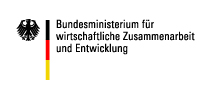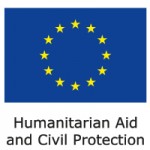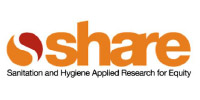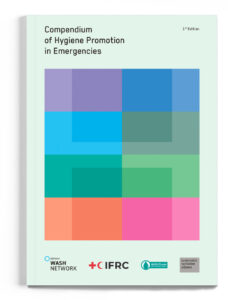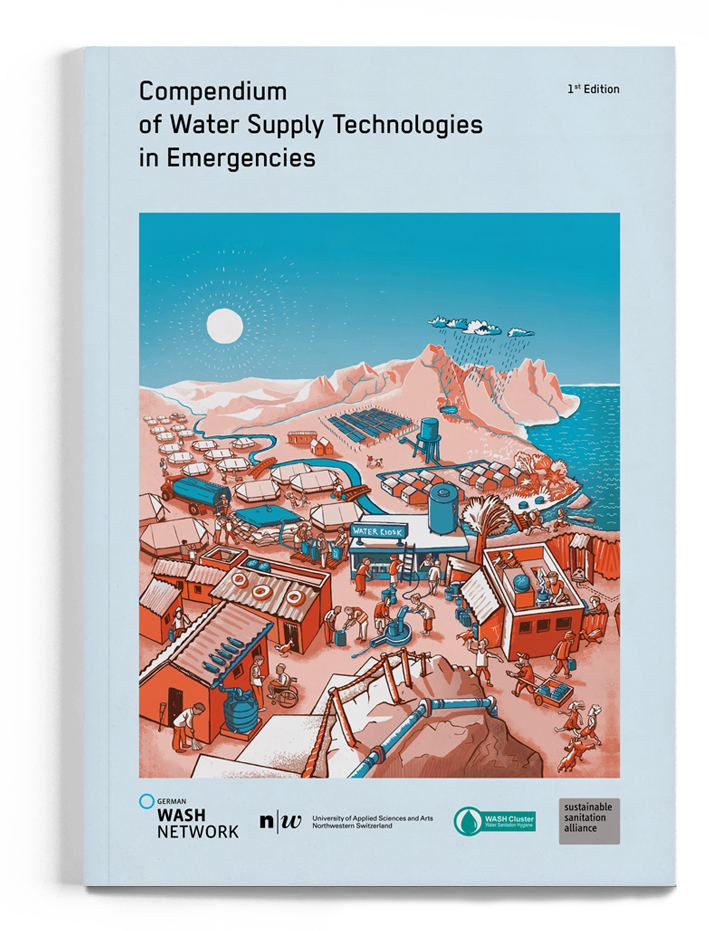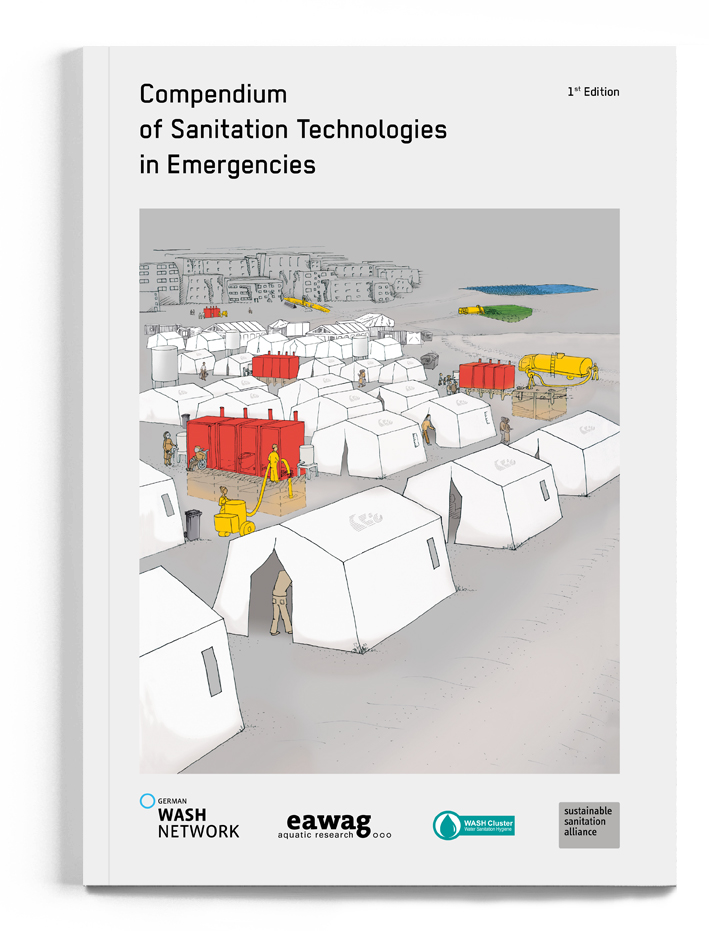Stockholm World Water Week 2015

Seminar: Wash in Nutrition – Review of strategy and operational solutions to fight undernutrition with Water, Sanitation and Hygiene
The publishing of a number of scientific reviews questioning the impacts of Water, Sanitation and Hygiene (WASH) activities on nutritional status of individuals, has encouraged different academic, development and humanitarian actors to take a closer look at the connection and dependence of these two sectors.
Due to inadequate access to safe drinking water (1.8 billion people), sanitation (2.5 billion people) and deficient hygiene practices 4 billion people annually suffer from diarrheal diseases, another 1.5 billion from worm infections. As a result, many people – living in poverty and hunger – are not able to absorb the nutrients in the scarce food that is available to them (utilization of food = 3rd pillar of food security). Valuable calories are literally wasted “into the toilet”, with children being most affected by the consequences.
Based on the recent research and operational initiatives taken by various organizations and scientific institutions, this event aims at providing an overview of the latest field experiences and research projects linking poor WASH status, infection and under-nutrition as well as boosting the advocacy efforts determined to increase global knowledge and awareness about this issue.
Among others, the SuSanA Working Group on WASH and Nutrition will present the current version of its Factsheet. The Sahel “WASH in Nut” strategy will also be presented along with the operational field experiences such as the ACF project in Burkina Faso. SHARE and LSHTM will present research that strengthens the evidence base on the impact of WASH on nutritional status and interventions to tackle this.
Finally, the event will advocate for more rigorous research, policy coherence and stronger cooperation among different sectors in order to ensure that WASH aspects are acknowledged and implemented as an integral part of nutrition interventions.
11:00 – 11:05 Welcoming remarks and greetings
- Jean Lapegue, Senior WASH Advisor, Action Contre La Faim – France
- Thilo Panzerbieter, Chair, German WASH Network
11:05 – 11:25 Panel dicussion
Participants:
- Oliver Cumming, Lecturer at the Environmental Health Group, LSHTM/ SHARE
- Dr Tania Rödiger-Vorwerk, Deputy Director General, Sustainable Development, Natural Resources, Economic Issues and Infrastructure, German Federal Ministry for Economic Cooperation and Development
- Christiane Hieronymus, Head of Division: Special Unit “One World No Hunger” (tbc)
- Claire Gaillardou, Technical WASH Advisor for West Africa, Action Contre La Faim – France
11:25 – 11:55 Group work: sharing best practices
- Group 1: New research directions to be explored
Facilitator: Joanna Esteves Mills, Policy Research Manager, SHARE/LSHTM
- Group 2: Operational solutions in WASH to fight wasting and stunting
Facilitator: Jean Lapegue, Senior WASH Advisor, Action Contre la Faim – France & Johanne Smyth, New Business Development Manager, Concern Worldwide
- Group 3: What can be done at policy /strategic level to better integrate WASH and Nutrition? Funding challenges for integrating WASH and Nutrition activities and how to overcome them
Facilitator: Christiane Hieronymus, BMZ & Ajay Paul, German WASH Network/ Welthungerhilfe
11:55 – 12:15 Sharing main recommendations
Facilitation: Kathryn Harries, Water, Sanitation and Hygiene Specialist
12:15 – 12:25 Questions of the participants to the panel of experts
Facilitation: Kathryn Harries, Water, Sanitation and Hygiene Specialist
12:25 – 12:30 Conclusions and a way forward
- Jean Lapegue, Senior WASH Advisor, Action Contre La Faim – France
- Thilo Panzerbieter, Chair German WASH Network
Conclusion of the event
The Topic of linking WASH and nutrition has gained in importance during this year’s World Water Week. There has been a significant increase in the involvement of the nutrition sector in this transversal topic compared to the previous years. Donors such as ECHO, USAID and BMZ have included or are planning to include WASH & Nutrition components in their funding strategies.
The ACF-German WASH Network (GWN) event provided updates on the latest research and the institutional as well as operational integration of the WASH and Nutrition nexus. Some important remarks in this regard:
- The first 1000 days of a child´s life are a critical window for effective WASH interventions (domestic hygiene, child faeces management, waste management) – Oliver Cumming, LSHTM
- The Germany Government has initiated the “One World No Hunger” initiative, which includes multi-sectoral approach in 11 countries to prevent under nutrition. The WASH sector has been recognized as an important component in this initiative – Ms. Hieronymus, Federal Ministry for Economic Cooperation and Development of Germany
- The Honourable Minister from Burkina Faso insisted on the implementation of practical actions to accompany national strategies (food hygiene & hand washing promotion, water quality improvement, coverage increase, surveillance and early identification of undernourished children, focus on “mother-child dyad”) – Mr Francois Lompo
- ACF emphasized the issue of seasonality, ORS/Zinc, Sever Acute Malnutrition targeting, Nutrition Causal Analysis, the challenge in measuring diarrheal, and the impact of WASH projects on prevention, treatment and post-recovery relapse of malnutrition cases – Claire Gaillardou, ACF France
The panel of experts was followed by working group discussion. The main recommendations derived from these discussions have been validated and presented at the SuSanA Working Group 12 on WASH and Nutrition meeting held the same day.
Where do we want to go?
Recommendations from the research group:
- Quantify the impact of what works and where, what interventions are cost effective and at what scale; Quantify the magnitude of the effect of WASH interventions on acute malnutrition; How to best measure prevalence of Environmental Enteropathy disease- what are effective and cheap methodologies available (e.g. use of biomarkers)
- Explore the enabling factors which make interventions work in practice
- Better dissemination of the key research findings to the policy makers and operations for adoption
Recommendations from the policy, strategy and advocacy group:
- Funding the gaps: provide support and invest in modelling intervention packages and evidence based research with potential to be scaled up within capabilities of governments and institutions; Global policies, appeals and budgets for integrated projects
- Two way integration: concrete representation of sector experts in high level sector meetings and the sectoral debate. Consideration of the sectoral integration not only in policies and strategies but also in Call for Proposals
- Global Policy: use existing platforms such as SUN movement and Sanitation and Water for All to integrate and budget for the integration process
Recommendations from the operational approach group:
- Ensure that WASH and nutrition projects include a behavior change strategy (consider targeting and importance of integrated assessment stage)
- Place emphasis on health system strengthening for sustainability, focus on engage and training of health practitioners
- Consider integrated analysis of both WASH and nutrition value chains to support financial sustainability (PPP, innovative social marketing etc.)
Find the seminar in the official World Water Week programme
Convener
German WASH Network
Action Contre la Faim (ACF International)
Co-Convener
German Federal Ministry for Economic Cooperation and Development (BMZ)
Deutsche Gesellschaft für Internationale Zusammenarbeit (GIZ)
European Commission’s Humanitarian Aid and Civil Protection department (ECHO)
London School of Hygiene and Tropical Medicine / SHARE Research Consortium
Concern Worldwide
Sustainable Sanitation Alliance (SuSanA)
Speakers and invited experts
In collaboration with
